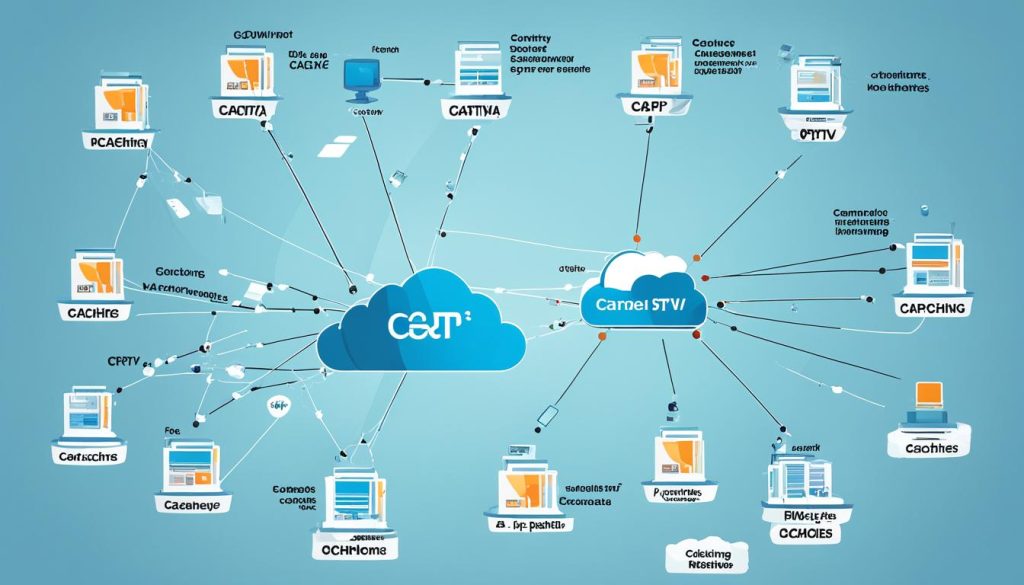“Technology is best when it brings people together.” – Matt Mullenweg
IPTV is changing how we watch TV. It lets you enjoy shows without the old cable TV limits. You get to watch a huge variety of channels and on-demand content smoothly.
No more waiting for videos to buffer. With IPTV, you can watch your favorite shows and live events without any pause. It’s all about giving you the best entertainment experience, making sure you’re always happy.
Key Takeaways
- IPTV delivers uninterrupted streaming, eliminating buffering issues.
- You gain access to high-quality content and real-time viewing.
- Versatility in content selection is a key advantage of IPTV.
- Say goodbye to the limitations of traditional cable TV.
- Experience pure entertainment with IPTV’s advanced technology.
What is IPTV?
IPTV has changed the way we watch TV. It uses the internet to send TV shows and videos straight to your devices. You can watch live or on-demand, making it super convenient.
Overview of IPTV
Unlike old TV, IPTV uses the internet for streaming. This means you can watch your favorite shows on phones, tablets, and smart TVs. It works well with other digital platforms, offering a flexible way to watch TV.
Watching live sports or binge-watching shows is easy with IPTV. It’s all about convenience.
How IPTV Differs from Traditional TV
IPTV and traditional TV are quite different. Traditional TV can have interruptions and limits because it relies on cables or satellites. IPTV, on the other hand, uses the internet for smooth streaming.
It also has a huge library of on-demand content, interactive features, and personalized recommendations. This makes IPTV a better choice than traditional TV.
Why IPTV NO BUFFERING is Essential
Buffering can ruin the show for viewers who want to watch their favorite shows without pause. That’s why IPTV NO BUFFERING technology is key for a great optimal viewer experience. Without buffering, watching shows becomes smoother and more fun, keeping viewers hooked and cutting down on frustration from delays.
For those who love uninterrupted IPTV streaming, every second matters. Getting rid of buffering lets you watch your shows as they were meant to be seen, without any pause. This tech aims to give you the seamless media consumption that fans of streaming want. Switching between channels becomes easy, and watching stays smooth.
Here are the perks of uninterrupted IPTV streaming:
- Less frustration for viewers
- Clear, high-quality picture and sound
- Better user satisfaction and loyalty
- Boosted reputation for service providers
No-buffering tech is vital for a top-notch viewer experience. It cuts down on streaming interruptions, making watching more immersive and fun. This leads to a big change in how we enjoy media, making IPTV a top pick for today’s entertainment.
Understanding Streaming Quality
Streaming quality is key for a smooth IPTV experience. It includes many elements that work together to bring high-definition content to your screen. Knowing what affects streaming quality helps you set up your IPTV for the best results.
Factors Affecting Streaming Quality
Many factors influence IPTV streaming quality:
- IPTV Streaming Resolution: Higher resolutions need more bandwidth. If your network can’t handle higher resolutions, you might see buffering.
- Bandwidth Utilization: Too many devices on the same bandwidth can lower IPTV stream quality. Managing bandwidth well ensures smoother playback.
- Video Compression Techniques: Good compression lets you get high-quality video without using too much bandwidth. Different codecs affect how much you can compress and the quality you get.
- Network Speed: Your internet speed is key to stream quality. A consistent and fast connection means better IPTV streaming.
- Hardware: Your device’s specs, like processing power and memory, also affect playback quality. Make sure your device can handle high-definition video.
How to Improve Your IPTV Experience
To get the most from your IPTV, try these tips:
- Upgrade Your Internet Plan: Choose a higher bandwidth plan to support higher IPTV resolutions without interruptions.
- Prioritize Bandwidth Utilization: Use Quality of Service (QoS) settings in your router to make IPTV traffic a priority over other apps.
- Use Advanced Video Compression Techniques: Pick services that use efficient video compression for better quality at lower bandwidths.
- Optimize Your Hardware: Make sure your device supports the latest codecs and has enough power to handle high-definition streams.
By focusing on these areas, you can greatly improve your IPTV experience. Enjoy buffer-free streaming and crisp, high-definition content.
The Role of Network Optimization
An uninterrupted IPTV experience depends a lot on network performance optimization. To keep the IPTV data flow smooth and efficient, we use various techniques. These methods help reduce congestion and make sure important data gets through first.
Improving Network Performance for IPTV
To make IPTV networks better, we start by managing bandwidth well. This means giving enough bandwidth to IPTV without slowing down other services. It’s also key to reduce congestion.
We do this by using routers and switches that can handle lots of data quickly. This cuts down on delays and lost packets.
Tools for Network Optimization
Specialized tools can really boost network performance. Network analyzers spot where the network gets slow or very busy. They give us clues on what changes we need to make.
Setting up quality of service (QoS) protocols is also smart. It makes sure IPTV data gets priority over other traffic. This cuts down on interruptions. Bandwidth managers are also key in keeping data flowing evenly across the network. They help solve congestion problems.
Exploring Adaptive Bitrate Streaming
Adaptive bitrate technology has changed how we watch IPTV. It makes streaming smooth and high-quality, even when the internet speed changes. This technology adjusts the stream quality to make sure users get the best viewing experience.
How Adaptive Bitrate Works
Adaptive bitrate streaming checks how much network bandwidth and device power is available. This smart way lets streaming services give you the best video quality without any stops. When the internet speed goes up or down, the technology changes the bitrate. This keeps the video playing smoothly.
Benefits of Adaptive Bitrate for IPTV
Adaptive bitrate technology in IPTV brings big benefits:
- Enhanced Playback: It cuts down on buffering, making streaming smooth and without breaks.
- Streaming Optimization: It changes video quality on the fly, giving you the best quality for your internet speed.
- Scalability: It works well with different devices, giving great performance on any screen size.
In short, adaptive bitrate technology is key to making streaming better. It leads to smoother playback for all IPTV users.
Importance of Low Latency in IPTV
In IPTV, low latency is essential. It’s crucial for real-time interaction during live sports, gaming, and events. This ensures your experience feels like you’re right there, making it more engaging.
Reducing latency is key for synchronous playback. Imagine watching your favorite team score live without delay or playing online games with quick responses. These experiences happen with effective latency reduction techniques. They make sure you’re always in sync with the action.

Responsiveness and synchronicity are key in IPTV streams. Thanks to new latency reduction methods, you get glitch-free real-time interaction. This means audio and visuals stay perfectly in sync. The quicker content reaches you, the better your viewing experience, especially for live events.
Putting a focus on low latency improves your IPTV experience. It makes live sports and interactive games more exciting. By using these new technologies, you can enjoy live broadcasts without annoying delays.
High Bandwidth Requirements for IPTV
To enjoy IPTV in high definition or 4K, you need a high-speed internet connection. Without enough bandwidth, you might face buffering and interruptions. These can ruin your viewing experience.
IPTV, especially in high definition or 4K, uses a lot of bandwidth. This shows why a strong and fast internet connection is key for smooth streaming.
Streaming high-resolution content needs a lot of data transfer speed. So, getting a high-speed internet connection improves your IPTV quality. It also makes sure your streaming is consistent without quality drops. That’s why high bandwidth is crucial for premium IPTV users.
Here’s a look at the typical bandwidth needs for IPTV:
| Resolution | Bandwidth Requirement |
|---|---|
| Standard Definition (SD) | 3-4 Mbps |
| High Definition (HD) | 5-8 Mbps |
| 4K Ultra HD | 25-30 Mbps |
The table shows that higher resolutions need more bandwidth. If you want to stream 4K Ultra HD, a high-speed internet is a must.
Leveraging Quality of Service (QoS) Prioritization
For a smooth IPTV experience, managing network traffic is key. Quality of Service (QoS) helps by giving IPTV streams priority. This ensures you can watch without interruptions. Here’s how to use QoS for your IPTV setup.
Setting Up QoS for IPTV
To set up QoS for IPTV, you need to adjust your router and network devices. Most routers have a simple interface for these settings:
- Log in to your router’s admin panel.
- Find the QoS settings under the Advanced tab.
- Enable QoS and make your IPTV the top priority.
- Save your changes and reboot your devices for them to take effect.
Benefits of QoS Prioritization
QoS offers many advantages, including:
- Reduced buffering: IPTV gets priority, cutting down on buffering and delays.
- Enhanced streaming quality: This prioritization means a smoother, better quality stream.
- Consistent performance: QoS keeps IPTV performance steady, even with other network use.
These benefits lead to a reliable, uninterrupted IPTV experience. QoS is essential for a good IPTV setup.
| QoS Feature | Impact on IPTV |
|---|---|
| Traffic Prioritization | Maximizes streaming quality |
| Reduced Latency | Minimizes buffering delays |
| Network Efficiency | Improves overall system performance |
Role of CDN Caching in IPTV
IPTV is changing how we watch media. It’s important to make sure content gets to us fast and in good quality. CDN caching plays a big role in this. It helps send streams quickly and well.
What is CDN Caching?
A Content Delivery Network (CDN) uses caching to store content on servers near viewers. This makes sharing data easier and faster. It cuts down on wait times, making streaming smooth.
Advantages of CDN Caching for IPTV
Using CDN caching in IPTV has many benefits:
- Reduced Latency: Content is stored near viewers, so it gets to them faster. This means less waiting.
- Scalable Distribution: CDNs can handle lots of users without slowing down. This means everyone gets a good experience.
- Higher Reliability: CDNs make sure shows play well, even when lots of people are watching. This keeps the stream smooth.

Adding CDN caching to IPTV makes content delivery better. It also makes watching shows and movies more reliable and fun. With CDNs, IPTV services can give users fast and efficient access to their favorite content.
Finding the Best IPTV Provider in the United States
When picking the best IPTV service in the United States, look for certain traits. You want reliable streaming, lots of content, and great customer support. These things make a big difference in your viewing experience.
Traits of a Quality IPTV Provider
Quality IPTV providers have a few key traits:
- Reliable Streaming: You need consistent streaming without a lot of buffering. Choose providers known for their uptime.
- Content Variety: A big library of content is important. Top IPTV services have lots of channels and genres, including sports, movies, and international shows.
- Customer Support: Good customer support is key. Pick providers that offer help 24/7 through chat, email, and phone.
- Flexible Subscription Plans: The best IPTV providers have different subscription options for various budgets and preferences.
Top Recommended IPTV Providers
Here are some top IPTV providers in the United States:
| Provider | Key Features |
|---|---|
| Sling TV | Sling TV is flexible, offering various packages for different viewing needs. |
| Hulu + Live TV | Hulu + Live TV combines live TV with a huge on-demand library for the best mix of live and recorded content. |
| fuboTV | fuboTV is perfect for sports fans, with many sports channels and reliable streaming. |
| Philo | Philo is a budget-friendly choice, offering a wide selection of entertainment channels at a good price. |
These providers are known for their commitment to a great IPTV experience. They offer reliable streaming, a wide range of content, and excellent customer support.
Conclusion
IPTV is leading the way in the future of television. It combines the best of traditional TV with the latest in streaming services. This makes for an unmatched entertainment experience tailored to you.
Knowing how to improve your IPTV quality is key. Things like network optimization and adaptive bitrate streaming make a big difference. With Quality of Service (QoS) and CDN caching, you get smooth, high-quality streams even with limited bandwidth.
Picking the right IPTV provider is essential. Look for ones that offer high bandwidth, low latency, and great customer support. This will make your experience with IPTV both smooth and fun. As technology gets better, IPTV will change how we watch media, starting a new chapter in entertainment.

